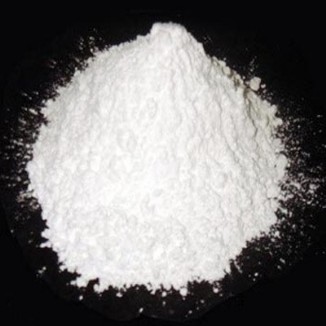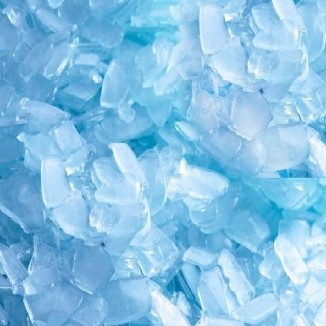2f. Fillers & Additives used In Soap Manufacturing
Soap Manufacturing > 2. Raw Materials
FILLERS
Different types of Fillers are used in soap manufacturing, mainly to reduce the cost of the final soap bars. Fillers are used in Laundry soap bars, and in some developing countries are used also in toilet soap bars. Some fillers can also improve some characteristics of the soap; laundry soap with powder fillers inside is little bit abrasive or alkaline and can better wash the clothes.
The % of the fillers is variable by the soap manufacturer from 5 - 20% of the soap weight.

KAOLIN & TALC
Kaolin is an aluminium silicate clay mineral also called China Clay. Talc, also called "talcum powder" is a magnesium silicate mineral. For soap manufacturing Talc and Kaolin are sold in white powder.
Kaolin and Talc are inert materials, which means they take no part in chemical reactions. they are also both insoluble in water, so they do not dissolve.
The talc is much whiter than kaolin; while this last is much easier to disperse into water than talc, which tends to sit on top of the water.
Kaolin is more used laundry soap bars, since usually it is cheaper than talc, while for white toilet soap, where whiteness is required, the best chose is talc.
Kaolin gives the structure to the soap, but the most important function of kaolin is to reduce cost of the final soap bars

SODIUM SILICATE
Sodium Silicate is a compound also called "liquid glass". In soap manufacturing it is used in transparent liquid solution. Sodium Silicate is a cheap filler and mainly used in laundry soap bars. Sodium Silicate is also an anti oxidant agent. The sodium silicate increase the duration of the soap and the rapid drying of the soap is prevented.
The sodium silicate in soap manufacturing is also used to increase the harness of the soap bars.
ADDITIVES
Many types of additives are used in soap manufacturing. Anti oxidant additives, like EDTA, are added to the soap to avoid rancidity in the soap, due to the oxidation of the fatty acids. Glycerine is added as a skin conditioning additive. Foaming agents are used to facilitate the formation of foam. Antibacterial soap includes some special additives like triclosan. Sulphur is added to produce anti-acne soap bars. Titanium dioxide is a whitening and opacifying agent; it helps to increase the opaqueness of the soap bars, and reduce the transparency of the soap bars. Different types of additives are used to produce whitening soap.
There are many other additives used in soap manufacturing, each of which has the proper scope.
